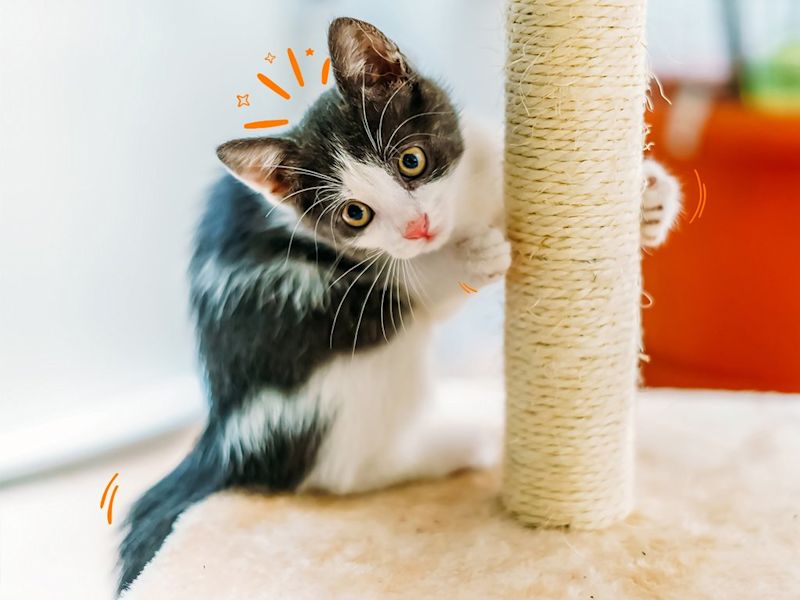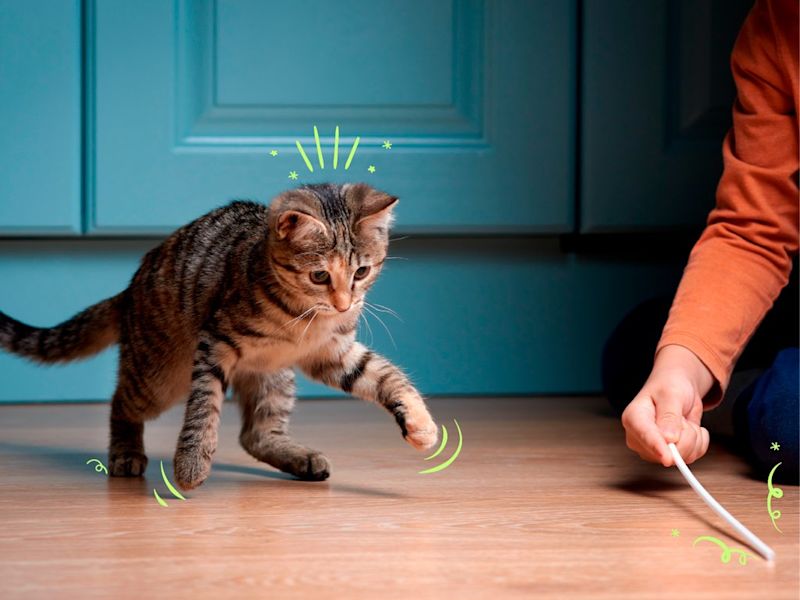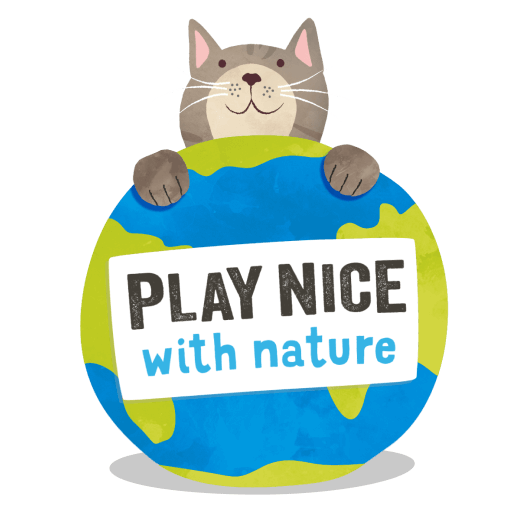How to raise a happy kitten


If you’re the proud owner of a kitten you’re probably starting to wonder how you can rein in some of its more unpredictable behaviour. Kittens are usually pretty mischievous and, in truth, any effort to ‘train’ this out of them is likely to be an uphill struggle. Famously, cats tend to have rather more wilful personalities than dogs. Nonetheless, there’s plenty you can do to help your feline friend grow into a happy, sociable companion.
What do we mean by ‘raising’ a kitten?
Cats are born with needs and instincts, and we shouldn’t attempt to ‘coach’ these traits out of them. You can aim to raise a happy cat, but you shouldn’t have unrealistic expectations. Cats actually need to scratch, climb, run and jump to be happy. Much of the difficult and unwanted behaviour a kitten exhibits are entirely normal for a cat. That means you need to let your cat be itself as much as possible.

Organising your home to meet your kitten’s needs
When it comes to raising a kitten, everything starts by organising their environment. You can stop certain undesirable behaviours by meeting your cat's basic needs and creating an environment that will help it flourish. From the age of about one and a half years, cats begin to find sharing difficult. It’s a good idea to anticipate this tendency and create an environment that meets those needs from an early age.
We recommend the ‘N+1’ rule, where the N stands for the number of cats in the house. One cat needs two eating locations, two drinking locations (these should be in a different place than the eating locations), two litter trays (cats like to have more than one spot to poop), two scratching locations and two shelters at different heights. By meeting all these needs from a young age you’ll help your kitten develop into a happy adult cat.
Cats are social animals
While cats need some space to themselves, it’s a good idea to adopt two kittens to keep each other company as they develop. Kittens who are adopted alone are more likely to exhibit behavioural problems and suffer from frustration, boredom and obesity. Remember to keep the N+1 rule in mind from the age of 1 year. So, if you have two kittens you should ideally aim to provide three of each location.
The importance of socialisation
In the first 16 weeks of their lives, kittens learn about their environment and what’s okay and not okay. It’s important to leave them with their mum for the first 12 weeks of their lives. During this time, they will learn from their mother and nest mates. It is important to expose your kittens to all kinds of experiences, sounds and novelties. Introduce games with rewards (such as healthy snacks) and cuddles. All of this will help your kitten on the path to healthy socialisation.

How to channel undesirable behaviour to develop positive behavioural habits
Changing the behaviour of your kitten starts with channelling their bad behaviour. Though it may seem counter-intuitive, you can do this by allowing them to exhibit their natural behaviour without intervening. Does your kitten want to sleep on the bed? Then put a protective cover on the bed. Does it want to get up on the counter? Then clean the counter afterwards.
At the same time, you can reinforce desirable behaviour by offering interesting alternatives and possibilities and rewarding them with attention and small treats when they take the desirable action.
Of course, you can also discourage particularly undesirable and potentially destructive behaviour by making it impossible. Hang up your curtains, put that fragile blanket in the cupboard and keep your jewellery under lock and key – problem solved! Additionally, try to remove rewards – such as small treats and your attention – when your kitten exhibits undesirable behaviour.
These steps will help to guide and channel your kittens’ behaviour without denying their natural instincts, allowing them to develop into happy, well-adjusted companions.
About Edgard & Cooper

Joyful pet food
Eating is one of life’s simple joys, so why overcomplicate things? Unlike most other pet foods, we treat nature’s ingredients with respect and make food that’s naturally healthy and full of flavour.

Play nice with nature
We’re on a mission to become the world’s most sustainable pet food. We love nature, so we pledge to make real, lasting change through our targets of zero carbon, fully sustainable packaging and ethically sourced ingredients.

Friends stick together
We donate 1% of our sales to the Edgard & Cooper Foundation, which works with charities that improve the lives of cats and dogs today, while protecting them tomorrow.







